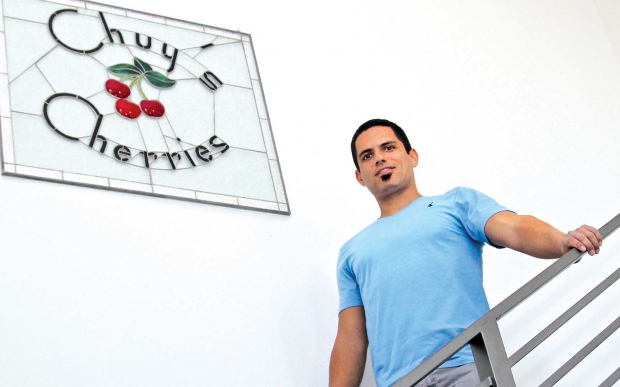
Jesus Aguilar, owner of Chuy’s Cherries, is not interested in big business. He’s found a niche supplying fruit stands and small specialty retailers. (Geraldine Warner/Good Fruit Grower)
Going to business school helped Jesus Aguilar figure out his goal in life—and it wasn’t to work in the corporate world.
When Aguilar was studying for his master’s degree in international business at Seattle University in Washington State, many of his classmates were already working as executives of big corporations in Seattle. But the more he learned about big business, the less he wanted to be a part of it.
Business school was an environment for people wanting to move up the corporate ladder with profit in mind, he said, and he didn’t feel it accommodated people who wanted to make a change.
“It’s not a nurturing environment for people wanting to use their brain,” he said. “What motivates me is feeling like I’m doing something useful and innovative.”
Aguilar runs his own cherry marketing business, Chuy’s Cherries, based in East Wenatchee, Washington, with the aim of helping small to medium growers maximize the value of their crop, while supplying what he believes is an underserved sector of the market—fruit stands and specialty markets.
He buys cherries from growers before the crop is harvested, negotiating a guaranteed per-pound cash price for a certain volume of cherries that must meet his specifications.
He doesn’t try to compete with the large Washington packing houses. He offers growers an outlet for fruit that won’t go to the warehouse for whatever reason. Perhaps the cherries are too small for the large retail buyers (though perfect for a fruit stand where flavor matters most), or perhaps the warehouse isn’t taking any more fruit because the market is oversupplied.
The grower pays for picking out of the agreed price. Aguilar can arrange for pickers through a labor contractor (who will typically charge the grower by the pound), or growers can use their own crews. Aguilar might ask for the fruit to be harvested a little later than for the major retail market to optimize the flavor.
The fruit is field sorted and packed either into boxes, sometimes under Aguilar’s Chuy’s Cherries label, or into 30-pound totes. Aguilar picks up the fruit and distributes it directly to his customers, who are typically small retailers or fruit-stand operators. This cuts out the middlemen and minimizes deterioration of the fruit, and the grower is paid in a matter of days.
“I have really focused on this segment of underserved people—the small- to medium-sized growers,” Aguilar said, noting that when growers take fruit to a warehouse, they don’t know what their returns will be.
For his customers, it’s an opportunity to buy export-quality cherries fresh from the farm at the same price they’d pay for wholesale fruit.
“For everyone who’s involved, it’s a win-win situation,” Aguilar said.
Although he mainly works with small and medium growers, he also buys fruit from some of the larger operations in California and Washington. For example, they might have cherries from pollinizing varieties that the companies don’t want the hassle of harvesting.
Migrant workers
Aguilar grew up in the fruit business. His parents, Jesus and Ortilia Aguilar, are from Jalisco State in Mexico and met in California. They were both migrant workers and until Aguilar was about 13, the family lived in a travel trailer, moving between California and Washington to pick fruit or prune vines.
“I probably went to 20 different elementary schools,” recalled Aguilar, who grew up speaking Spanish at home.
Finally, they settled in East Wenatchee, Washington, where his parents continued to pick fruit. By working harder and faster than other pickers, they were eventually able to make enough money to buy an acre of orchard in East Wenatchee. The orchard did so well that they bought one more acre, and then a 10-acre alfalfa field in Mattawa, in Washington’s Columbia Basin, that they planted with cherry trees.
“That was one of the toughest times we went through,” Aguilar recalled. “It takes a long time to get an orchard into production. More than anything, it taught me how to make sure you’re not overspending and to ration out your resources and not get ahead of yourself. And it taught me how to run a business, so you can be successful without spending a million dollars. My parents never lived beyond their means.”
After graduating from high school, Aguilar went to Central Washington University to study business, and continued to work in orchards during the summers. One summer, when he was a college freshman, his father made a deal with a small cherry grower to buy the whole crop on the trees for $200. His father suggested that, instead of working in apples that summer, Aguilar pick some of the cherries and try to sell them.
He picked a few boxes and sold them to local fruit stands. At one location, he met a woman visiting from Seattle who asked if he could get more of the cherries and deliver them to her. That led to more orders in Seattle.
When the cherries ran out, he bought fruit from other growers. He did the same every summer to pay his way through college, which is how his business got started.
After graduating with his bachelor’s degree, he went to Mexico and later Chile to look at being involved in the produce import/export business. He concluded it was too risky and went to Seattle University to study for a master’s degree, while still operating his summer cherry business.
Since leaving graduate school, he’s able to go to California each spring to get an early start on sourcing and marketing cherries and then move back to Washington for the Northwest season.
Networking
His experience as an orchard worker helped prepare him for the horticultural aspects of his job, but equally important are his networking skills. He’s leveraging his contacts to add value to the grower’s crop.
“I’m not just buying and selling,” he said. “I’m a database, basically. I know all the people in these different areas in California and the Northwest. There’s a lot of information required to do this. You’ve got to talk to farmers, fieldmen, owners of packing houses, people who work at the wholesale markets, and more than anything you have to have intuition and see trends that have taken place in previous years.”
Through that network, he gains a clear picture of overall market conditions so he knows what buyers are looking for and what the pricing should be. When he has the opportunity to buy cherries from growers, he runs an analysis in his head to see if it’s plausible.
“Sometimes, people are a little bit leery, but then they see, ‘this guy’s here to sell cherries, not to rip me off,’” he said. “If everybody lives up to their commitment, I can live up to my commitment. If I’m going to work with someone, I’m going to do the best job I can. If I can’t, I’ll say, ‘I’m sorry’ and be straightforward with you.”
There are times when it doesn’t make sense to harvest and sell the fruit. He might not be able to match it up to a buyer or the grower might have unrealistic price expectations.
“I do find people who want to hit the jackpot,” he said. “This can be a growing relationship where we can both benefit—but work with me!
“I feel good about what I do,” he added. “I feel I’m doing something right in my life and that’s all I wanted to do.” •

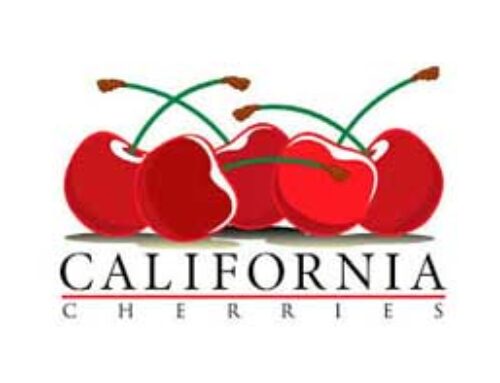
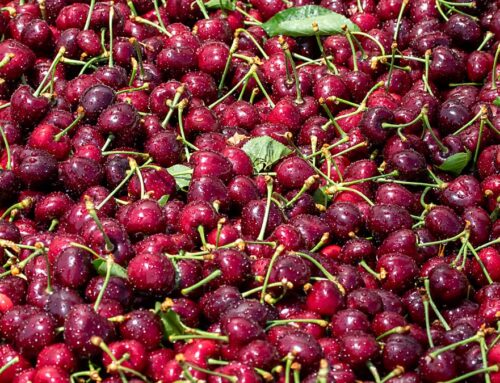
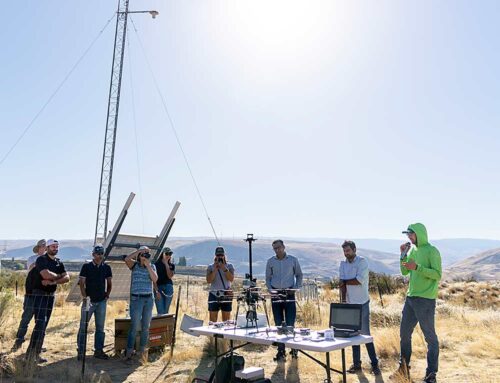
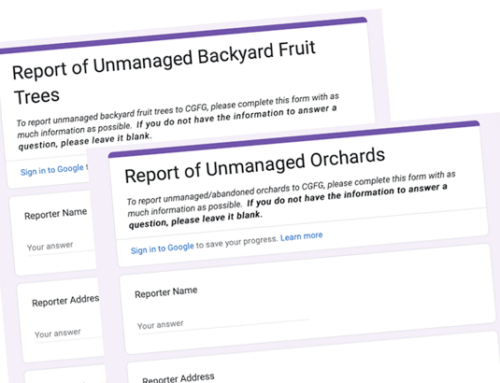
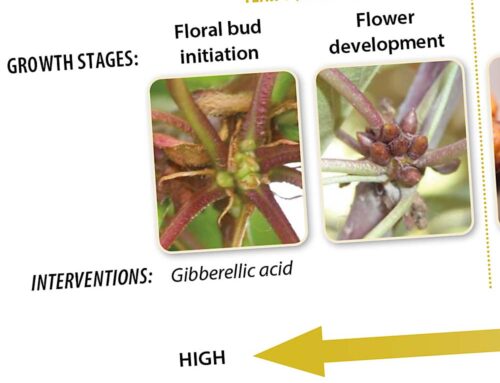
Leave A Comment